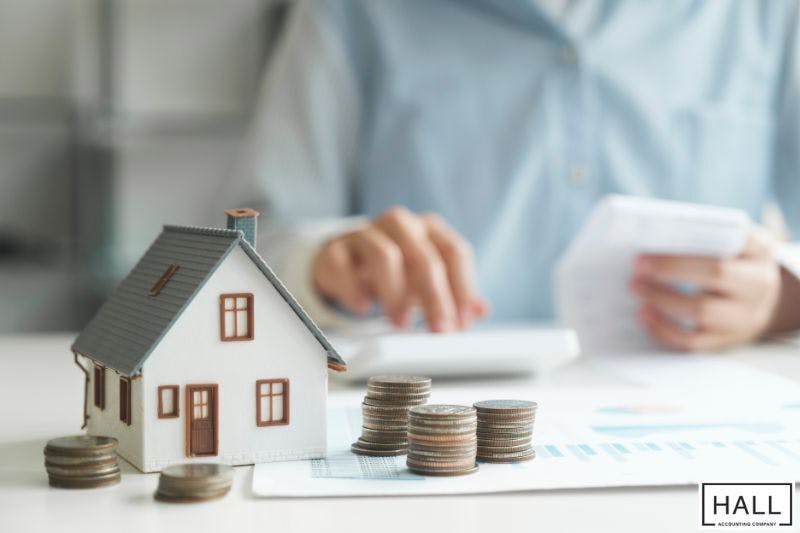
Property taxes are different in every state. In San Antonio, the property taxes are some of the highest in America, with an average rate of 1.87%, well above the national average of 0.9%. [1]
If you’ve recently relocated to San Antonio, TX, or are thinking about doing so, you probably want to understand the tax implications of buying and owning property in the Lone Star State.
We take some time to discuss the tax rates associated with property in San Antonio, with the aim of helping you avoid nasty surprises, and proactively plan your taxes.
How property taxes work in San Antonio
Property taxes in San Antonio are determined based on the appraised value of real estate properties, which are assessed annually by the Bexar County Appraisal District (BCAD). The total tax amount is calculated by multiplying the appraised property value by the combined tax rate set by various taxing authorities, including school districts, the city, and the county.
Factors that determine property taxes in San Antonio
Three factors determine the calculations of property taxes in Texas and are key to understanding how the rates are determined.
Appraised value - determined by the BCAD and based on market conditions and property characteristics.
Tax rate - varies depending on the taxing entities covering the property.
Exemptions - available for certain homeowners and businesses to reduce the taxable value of the property.
How to calculate property rates in San Antonio
To do your own calculations for a current or potential property, follow the following formula:
Annual Property Tax = (Assessed value - applicable exemptions) x Total tax rate
For example, if your home is appraised at $300,000, and you qualify for a $40,000 homestead exemption, your taxable value is $260,000. If the total tax rate in your locale is 2.5%, your annual property tax bill would be:
Annual property tax = ($300,000 - $40,000) x 0.025 = $6,500
This would require you to save a minimum of $542 a month in preparation for paying annual property taxes.
Need help from a professional tax accountant? Hall Accounting Company recognizes that local San Antonio residents have a number of tax related issues that affect their overall tax bill. Let’s discuss these issues, along with your overall financial well-being.
Average property tax rates in San Antonio

Image courtesy of sanantoniomag.com
As of recent years, the average property tax rate in San Antonio has ranged from 1.87% and 2.7% of the property’s assessed value. However, rates are dependent on the tax year, location (mailing address), school district tax rate, state and local taxes, and other taxing authorities. Here’s a breakdown of approximate property tax rates for San Antonio cities:
San Antonio City (Bexar County): 2.69%
Alamo Heights: 2.34%
Castle Hills: 2.62%
Fair Oaks Ranch: 2.47%
Grey Forest: 2.22%
La Verna: 2.21%
Natalia: 2.77%
Sandy Oaks: 2.66%
Universal City: 2.74%
These combined tax rates include municipal tax, school district tax, and county tax.
Property tax exemptions
San Antonio offers several exemptions to help reduce property tax burdens for qualifying homeowners and businesses. Here are some of the most common.
Homeowners | ||
Exemption | Advantage for the taxpayer | Amount |
Homestead exemption | Reduces taxable value for a primary residence. Properties must meet eligibility criteria. | Between $40,000 - $100,000. |
Over-65 or disabled exemption | Seniors and individuals with disabilities are afforded exemptions in recognition of the financial constraints they may face. | Between $3,000 - $10,000, depending on local taxing authorities. |
Veterans exemption | Offers property tax relief to disabled veterans and their surviving spouses. | A portion of, or the full value of, the property value. Determined upon approval of the application. [2] |
Further helpful information: When is property tax due in Texas?
Why is property tax so high in San Antonio?

In the Lone Star State, there is an interplay between high property rates and a lack of state personal income tax. In the absence of a personal income tax, the state must collect funds from residents in another manner, and that is reflected in the high property tax rates.
Texas property tax rates are some of the highest in the country, and can be up to 2.7% of the total assessed value of the property. These taxes are used for the upliftment of the community as follows:
School funding
A significant portion of property taxes revenue goes towards funding public schools in San Antonio, ensuring quality education for its residents.
The state determines how much money school districts receive from both local property taxes and the state, using a formula called the Foundation School Program Formula. This formula calculates how much money school districts need to operate schools, including salaries and supplies.
The amount of property wealth in a school district determines how much of its budget is covered by local taxpayers. The more property taxes increase in an area, the more of a school district’s budget is covered by local property taxes instead of the state.
Public services
San Antonio further relies on property taxes to fund essential services such as police, fire departments, infrastructure maintenance, libraries, and public parks.
As the taxes are collected, they are assigned to services identified by the local governing authorities and allocated according to approved budgets. These services are directly and indirectly responsible for the safety, education, and well-being of the community.
Rapid growth and development of San Antonio
According to recent data (2023-2024), San Antonio is the 4th fastest growing county in Texas. Newcomers have arrived from other states, and this puts increased pressure on existing housing supply, community resources, and infrastructure.
This calls for an increase in schooling and public services as the population grows, and this puts pressure on the amount of funding that comes from property taxes.
Further reading: Why are property taxes so high in San Antonio
How you can lower your property tax bill

It is indeed a fine line between providing the community with necessary services through property taxes and acknowledging that homeowners in Texas need some relief from property taxes. With this in mind, here are several suggestions for lowering the individual burden of taxpayers, while still keeping the community afloat.
File for eligible exemptions.
Appeal your property appraisal if you believe your property is overvalued.
Proactively calculate and save for property taxes.
Meet deadlines for property taxes to avoid paying penalties.
Hire a tax professional or accountant to help you uncover additional savings.
Need help navigating property taxes? Hall Accounting Company offers expert tax services to ensure you deal with property taxes as part of a proactive tax planning strategy, while staying compliant with tax laws. Schedule a consultation today!
Frequently Asked Questions
1. When are property taxes due in San Antonio?
Property taxes in San Antonio are due on January 31st of each year. If not paid by this date, penalties, and interest begin accruing on February 1st.
2. What happens if I don’t pay my property taxes by the deadline?
Late payments result in penalties and interest that increase over time. If taxes remain unpaid, the local taxing authorities can place a tax lien on the property, which could eventually lead to foreclosure.
3. Can I set up a payment plan for my property taxes?
Yes, Bexar County offers payment plans for delinquent property taxes, particularly for homeowners facing financial hardship. You must contact the Bexar County Tax Assessor-Collector’s office to explore options.
4. How do property taxes affect rental property owners?
Rental property owners also pay property taxes, and they should factor these taxes into their operating expenses. Higher taxes can lead to increased rental prices for tenants, as landlords adjust to cover costs.
Keeping rentals at affordable prices for the San Antonio area is crucial for economic growth, and a tax accountant can help you manage your tax liability in the most affordable way for yourself and your tenant.
5. Do property taxes in San Antonio differ from nearby counties?
Yes, property tax rates vary by county and city. Some neighboring areas may have lower rates due to differences in school district funding, city budgets, and available exemptions.
6. Can new homeowners expect a change in their property tax bill?
Yes, each time a new home is purchased in the same, or different city, its appraised value must be reassessed.
This can lead to a higher tax bill if the value of the home is higher than what you previously owned. If the property taxes are an issue for you financially, review the property taxes for the area before making your purchase.
Conclusion
While property taxes in San Antonio are amongst the highest in the country, understanding how they are calculated and what exemptions are available can help you plan for your tax bill.
Whether you’re a new resident, a property investor, or a long-time homeowner in San Antonio, making a change, staying informed about your property tax obligations is key to avoiding unexpected tax burdens.
Property tax laws and exemptions can be confusing, but you have the option of seeking professional advice, not only for property taxes, but your overall tax liability.
With Hall Accounting Company’s team of tax associates, you can work on a proactive plan to mitigate the effects of high property taxes and still own your dream home. Schedule a consultation today and put worries about property taxes behind you.
References:
1. Texas Property Tax Calculator